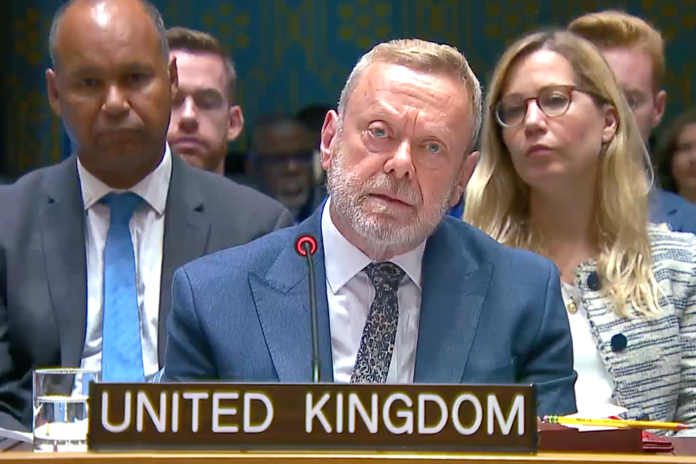United Nations, New York — The United Kingdom has issued a strong call for permanent African representation on the United Nations Security Council, emphasizing the urgency of reform to better address global challenges. Speaking at the UN Security Council meeting on August 12, 2024, Lord Collins of Highbury, the UK’s Minister for Africa and the United Nations, underscored the importance of enhancing Africa’s role within the Council.
“We are running out of time,” Lord Collins warned, highlighting the pressing nature of the world’s crises. “The challenges we face today do not respect borders, and they are sorely testing the international order the United Nations has championed.”
In his remarks, Lord Collins pointed to the unprecedented number of conflicts, the worsening climate crisis, widespread economic hardship, and growing humanitarian needs as indicators of the urgent need for a more inclusive and representative Security Council. “For these institutions to represent the world of today, they must be as effective as they can be,” he stated, calling for the expansion of the Council’s membership to include permanent African representation.
The UK’s stance reflects a growing consensus that Africa’s experience and expertise are invaluable in addressing global issues, particularly those related to peace and security. “We have seen how much African members bring to this chamber,” Lord Collins noted. “They are vital agents for change and progress, and they must be heard.”
He further cited ongoing collaborations between the UK and African nations on critical issues such as the political crisis in Sudan and the security transition in Somalia. “The UK is proud to be working alongside our African partners on issues that are at the forefront of the Council’s agenda,” he said.
Lord Collins acknowledged the significant obstacles to reform but reaffirmed the UK’s commitment to overcoming these challenges. “The United Kingdom is determined, absolutely determined, to overcome them,” he declared, signaling a resolute push for meaningful change.
The call for permanent African representation comes at a pivotal time as the international community grapples with the need to adapt multilateral institutions to the realities of the 21st century. “For this Council, that means expanding our membership in both categories, to include permanent African representation as a matter of urgency,” Lord Collins concluded.
Editor: Gabriel Ani




